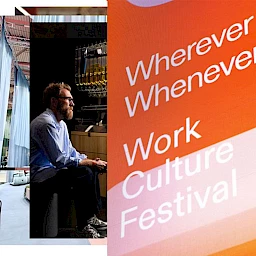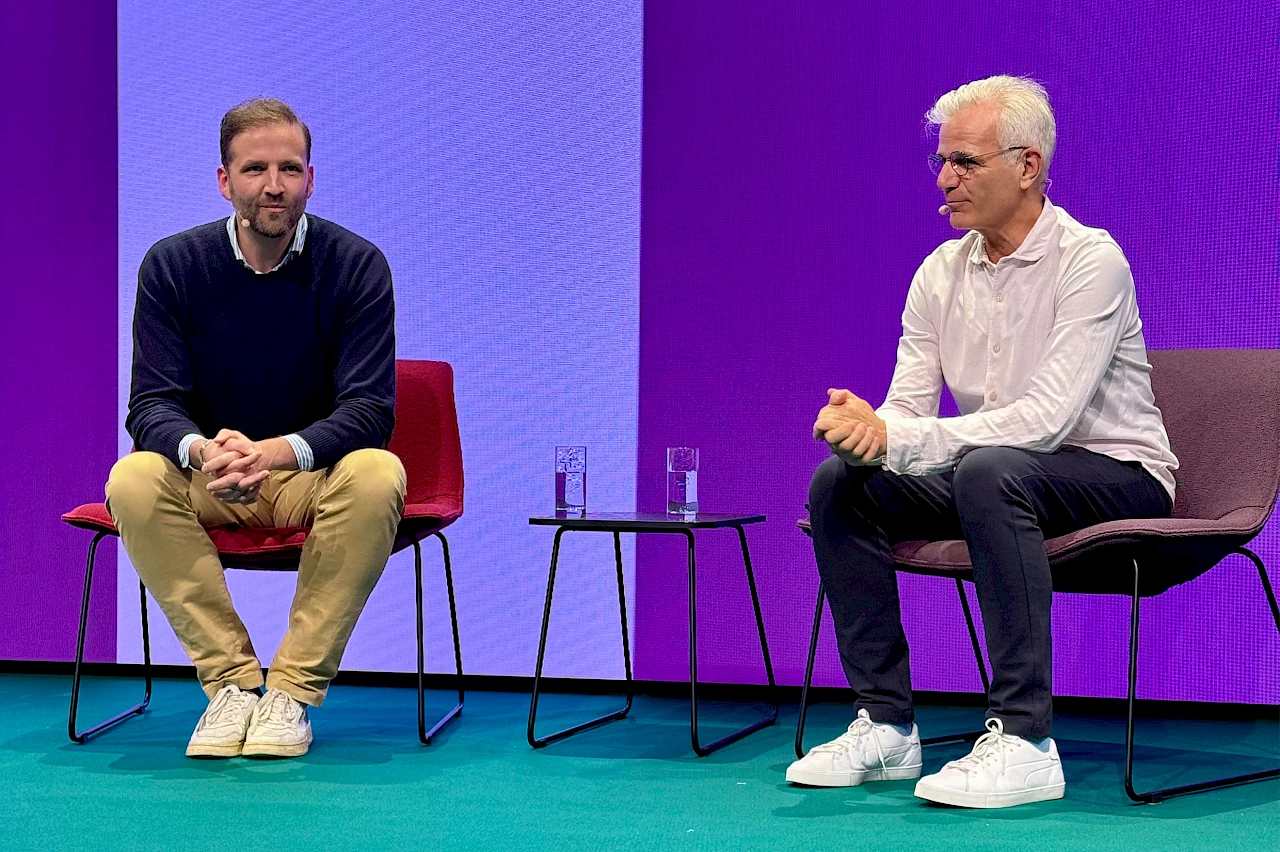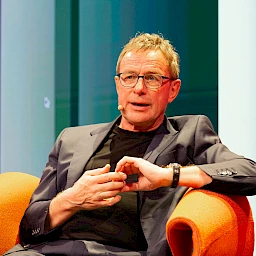At this year’s ORGATEC, Fabian Kienbaum, Co-CEO of Kienbaum Consultants International, was a guest in the live podcast “On the Way to New Work”. In an interview with host Michael Trautmann, he explained why brave leadership is the key to future viability and how experience from top-level sport helps people to leave their comfort zones and take responsibility.
From the pitch to the boardroom
“How did you become the person you are today?” Trautmann asked at the beginning of the interview. Kienbaum replied that he was shaped by his years in team sports. “My time in handball had a lasting impact on me,” he explained. In addition to the sporting competition, the diversity and team spirit had a particular effect. Different age groups, cultural backgrounds and positions in the team constantly challenged him to act flexibly and accept new roles. It was in the Bundesliga in particular that he learned to deal with pressure, defeats and criticism. “Sport taught me resilience because I learned how to get back up after setbacks,” said Kienbaum. He applies this experience to his leadership role today: “You have to be prepared to also make uncomfortable decisions and learn from them.”
Courage as a success factor
Brave leadership was a key aspect of the talk. Kienbaum reported on a study that his company had conducted during the pandemic to find out which characteristics lead to success in times of crisis. “Courage is the interface between determination and value orientation,” he explained. During the pandemic, many people were forced to reflect on their lives and priorities. This reflection also took place at an organizational level. Companies that were prepared to take risks and pursue innovative approaches proved to be particularly successful. “It wasn’t just about reacting, but about actively shaping.” But what does brave leadership look like in concrete terms? Kienbaum emphasized the importance of handling criticism and a culture of feedback. According to the study, 64% of respondents saw openness to criticism as one of the biggest problems in companies. “If criticism is not voiced, it creates a culture of fear that inhibits innovation and blocks potential,” he explained. Kienbaum also emphasized the relevance of psychological safety. He quoted Harvard professor Amy Edmondson, who advises teams to actively ask for dissenting opinions: “What have we overlooked? Are we making light of something?” This approach, which welcomes dissent and criticism, is essential for making informed decisions. Kienbaum emphasized that psychological safety should be created from the outset, with managers specifically encouraging team members to share their perspectives and creating an open atmosphere in which critical opinions are also welcome.
Leadership in the new world of work
In a world characterized by digitalization and hybrid working models, communication is becoming increasingly important as a leadership skill. “The right communication is crucial to building trust and binding different stakeholder groups to the company,” said Kienbaum. This applies to both digital and personal interactions. Kienbaum emphasized that brave leadership is always based on humanity. “If you don’t like people, you shouldn’t lead,” he made clear. At the same time, he admitted that leadership can be exhausting. The pressure on decision-makers is high, but an organization can only be successful through empathy and genuine interest between its members. The coronavirus pandemic brought an interesting twist here: many managers suddenly became visible in private moments during virtual meetings — whether through children bursting into meetings or other insights into their homes. According to studies, this authenticity often led to employees rating their managers more positively than before the pandemic.
Leadership as a permanent learning process
At the end of the talk, Kienbaum took a look into the future. He described brave leadership as a dynamic process that needs to be constantly adapted. “There is no one right leadership style,” he emphasized. Rather, it is important to act in a contextualized manner and to keep in mind both your own values and the needs of the employees, especially those from Generation Z — the new generation. This age group places particular value on feedback, coaching and flexibility. Brave leadership can help to meet these needs and at the same time make better use of the potential of Generation Z. Managers who promote psychological safety and communicate openly create a working environment that attracts and retains young talent. Kienbaum particularly emphasized the role of “reverse mentoring”, in which younger employees pass on their expertise, for example in dealing with AI and social media, to older colleagues. Companies’ active practice of courageous leadership is also reflected in the Net Promoter Score (NPS), which measures the willingness to recommend the company to others. These companies have higher NPS values and benefit from greater employee loyalty — they are perceived as attractive employers. In this context, Kienbaum emphasized that people play a decisive role in organizations: “The strongest form of recruitment is still recommendation. Courageous managers make a decisive contribution to creating a culture that not only attracts talent, but also retains it in the long term.”
Work Culture Festival Impressions

Summary: courage plays a key role in the modern world of work. Whether promoting the ability to take criticism, developing innovations or creating psychological security — brave leadership combines determination with a focus on values and thus strengthens the future viability of organizations.





